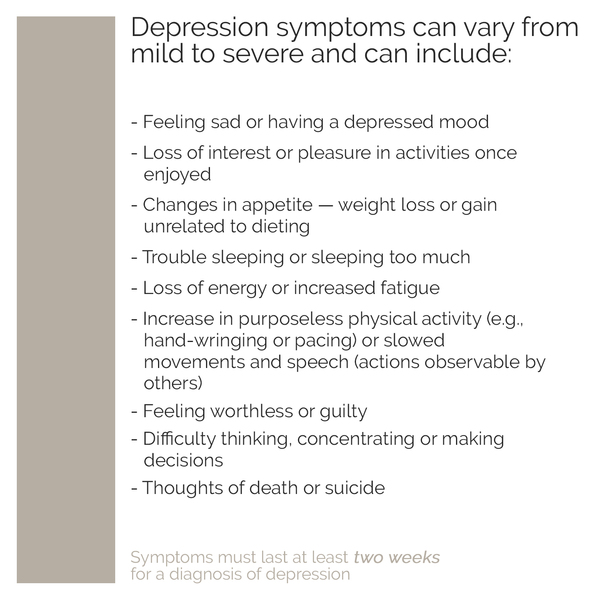By Pastor Andrews - Mar 12, 2018 #children #depression #parenting
Depression and the American Adolescent

Well known journalist Elizabeth Bernstein recently published an article entitled, “How to Spot Teenage Depression.” She cites statistics that clearly indicate an increase in the number of adolescents who experience depression. Given the mounting influence of secularism, this is not surprising. Leaving God out of one’s life will always produce a negative outcome. As C.S. Lewis puts it in Mere Christianity:
- “God made us: invented us as a man invents an engine. A car is made to run on petrol, and it would not run properly on anything else. Now God designed the human machine to run on Himself. He Himself is the fuel our spirits were designed to burn, or the food our spirits were designed to feed on. There is no other. That is why it is just no good asking God to make us happy in our own way without bothering about religion. God cannot give us a happiness and peace apart from Himself, because it is not there.”
There are nine symptoms listed in the Diagnostic and Statistical Manual of the American Psychiatric Association (see sidebar). If five or more are present over a period of two weeks, the person is clinically depressed and in need of treatment. Bernstein attributes the growing problem of depression among teens to stress factors that are unique to this generation. She points out that today’s teens are the first to grow up with smartphones and social media, the first generation to face the scourge of school shootings, and increasingly pressured to succeed.

As I read her article, my heart ached for children and teens that suffer from depression. Free from the stress and burdens of adult life, you’d like to think that time of life would be free from such melancholy. But times have changed, and we need to confront the problem biblically and in the spirit of Christian compassion. So, allow me to offer some guidelines to help any parent in dealing with a depressed child:
1. Seek to understand.
While seeking reliable sources of information about depression is important, it is most valuable to observe and listen to your child. There is no substitute to being involved in your child’s life and keeping the lines of communication open. Don’t allow alienation of affection. If you feel like you’ve caused your teen to withdraw, immediately seek reconciliation and be willing to admit your mistakes and ask for his or her forgiveness.
There is no substitute to being involved in your child’s life and keeping the lines of communication open.
2. Seek to discern the difference between physical and spiritual symptoms.
As Christians, we need to understand the difference between physical and spiritual symptoms. For example, physical symptoms might be a loss of appetite and weight, insomnia, restlessness, inability to focus, or fatigue. Spiritual symptoms include things like unexplained anger, guilt, shame, fear, hopelessness, feeling alienated, or suicidal thoughts.
Bernstein offers some good practical advice for parents who think their teen may be dealing with depression. She advises parents to ask gentle questions, to talk to teachers or coaches, to speak with a pediatrician, and to find a good therapist. She wisely adds, “Act immediately if your child speaks of self-harm.” As a pastor, I am always available to counsel but realize that sometimes a professional therapist may be required in some cases.
3. Seek to deal with the heart.
Determine if the behavior is sinful and forbidden in the scriptures. It is vitally important to be discerning at this point. If the behavior is due to physical causes we cannot hold the person responsible. Obviously, a person should not be held morally responsible for a loss of appetite or an inability to sleep. However, if the behavior is due to spiritual causes we must be careful not excuse sin but confront it with honesty and compassion. For example, a teen experiencing guilt is liable to manifest unexplained anger or express a sense of worthlessness.
4. Hope in Christ.
Our Lord Jesus is sufficient for every problem. He is ever present and has promised grace to help in time of need. As believers, we have the indwelling Holy Spirit, the Word of God, and the gifts of the Spirit active within the body of Christ. Also, never rule out the possibility of spiritual warfare and the absolute priority of prayer. Praying with your depressed child is always a good idea, as well as reading through some of the Psalms together. Take time out to spend with them where you can give them your undivided attention. Trust God for victory and remain joyful in hope. Turning our eyes upon Jesus, leaning on him for strength and wisdom, and trusting him in the dark times has endured as life’s greatest therapy.
>> Get my free e-book, Ten Chapters of the Bible Every Christian Should Know and Understand